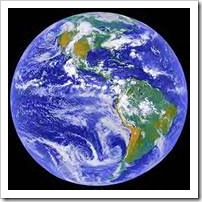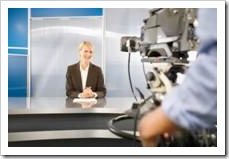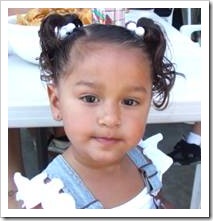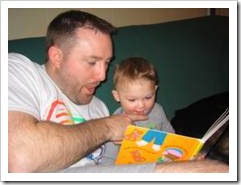 Much of our feeling of certainty in life comes from what we know. We get up in the morning and know the sun is there, even on days when it is hidden by clouds. We go to work and know others will be there too, because it is a working day. We stay home on weekends and know it will be OK, because nobody will be at work anyway – they are all at their own kids’ football games.
Much of our feeling of certainty in life comes from what we know. We get up in the morning and know the sun is there, even on days when it is hidden by clouds. We go to work and know others will be there too, because it is a working day. We stay home on weekends and know it will be OK, because nobody will be at work anyway – they are all at their own kids’ football games.
This is a very good thing, because otherwise, we would spend most of our time wondering what to do and being totally confused.
But most of our knowledge has been acquired by a process we call “learning”, which is when information comes to us from a trusted person (teacher, professor, parent, etc) or a trusted source (books, newspapers, TV).
For this type of knowledge, we have no proof. Most people have never seen the world from the outside, yet they feel they know what it looks like. Most people have never been to faraway countries (like, oh, I don’t know, Iraq maybe), but they argue with certainty the latest events they see on the news. Most people are no experts on economy, health, philosophy or education, but they feel comfortable talking about them at parties.
 This type of knowledge is delivered to us by subjective sources and is very often only valid in the context in which it is given. We feel we have gained new knowledge, but we have actually created a new belief based on our trust in the source.
This type of knowledge is delivered to us by subjective sources and is very often only valid in the context in which it is given. We feel we have gained new knowledge, but we have actually created a new belief based on our trust in the source.
18th century philosopher David Hume claimed we actually know nothing for sure. He said that if we throw a tennis ball at a wall and it bounces back, the only thing we can learn from it is that the ball has bounced back. We can throw it again and again 1,000 times and there is still no guarantee it will bounce back the next time. The ball might get flattened and drop, the wall might crumble or someone might step into the ball’s path. We know absolutely nothing about the future with real certainty.
OK, so this is a bit extreme, because 1 out of 1,000 is still pretty certain, but the point is that we never truly know anything unless we know everything.
But beyond philosophy, I am sure you realize that news sells advertising and that the information we are exposed to is selective and biased. When a government’s political agenda changes after an election, even your kids’ school curriculum may change, sometimes to the point of using different History and Social Science books that support a different political opinion.
I have had some personal experience with fabricating reality to suit the media, including newspapers, radio stations and a TV program. It was not pretty.
 How does this affect your life? And how is it related to parenting?
How does this affect your life? And how is it related to parenting?
I am glad you asked.
Our modern world bombards us with information everywhere and from every direction. Organizations have become very clever about the way they send us messages – they use “authoritative” figures to deliver the messages, they use (incessant) repetition, they attract our attention towards what they deem important and draw it away from what would be better for them we did not see.
This is the most difficult time in history to get clear, objective and accurate information on anything, really. We see things “as they happen”, but we never see what happens behind, around or in the next street. We read inflaming descriptions of what someone has said, done and even meant in big, bold letters, but we never notice the tiny correction statement on the inside back page with the person’s response.
And most of the information is bad – people get killed, abused, taken to court, arrested, flooded and evicted, they fight and they suffer disasters and oppression. The world is a dangerous place for kids.
 Is it?
Is it?
Well, our kids do not know any better than what we allow them to know. Being young, they are curious and open and do not question incoming information. Being small, they trust grown-ups and older kids just because they are bigger and older. Being human, once they form a belief, they begin to reinforce it by collecting supporting evidence and ignoring anything that disagrees with it. Pretty quickly, they just “know” it.
Their only defense is us, their parents. But what can we do?
As always, the first thing we can do is be aware. We need to see that knowledge is a collection of beliefs, each of which can be questioned and then strengthened or eliminated to suit our needs. We also need to be aware of the kinds of information our kids are exposed to and the sources of information they trust.
Then, we need to act as a filter for our kids by restricting their access to harmful information and encouraging positive types. We must put control over what they see, hear and experience as much as we can. And we need to help them process what they “learn” by talking, explaining and prompting with questions to ensure what they remember will serve them well.
 Finally, we need to help our kids develop their own filters, to treat new information with a healthy dose of skepticism, to correlate, to ask their parents and to accept or reject it based on whether it will serve them or not.
Finally, we need to help our kids develop their own filters, to treat new information with a healthy dose of skepticism, to correlate, to ask their parents and to accept or reject it based on whether it will serve them or not.
So serve and protect your kids and help them form good, useful beliefs they will call “knowledge” while they are having a great life.
Happy parenting,
Gal











